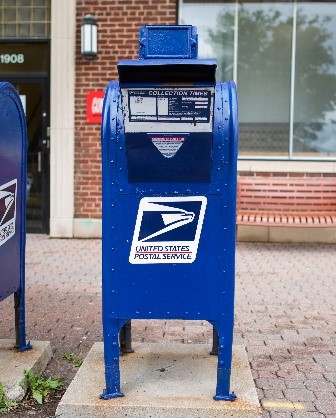The financially burdened U.S. Postal Service may have to close this summer if it doesn’t receive more stimulus funding, two Democratic representatives said in a statement last week. Carolyn Maloney of New York, who chairs the Committee on Oversight and Reform, and Gerry Connolly of Virginia, who chairs the Subcommittee on Government Operations (which oversees the USPS), wrote in the statement that losing the service “could be even more dire in rural areas, where millions of Americans are sheltering in place and rely on the Postal Service to deliver essential staples.”

“The House version of the stimulus/relief bill included $25 billion in direct cash to the Postal Service, ‘for revenue forgone due to the coronavirus pandemic,’ as well as the elimination of the USPS’s outstanding debt and the authorization to borrow a further $15 billion,” Elizaeth Bauer reports for Forbes. “The final version, in contrast, provided only for $10 billion in future borrowing ability.”
It seems counterintuitive that mail volume is down, since so many people are ordering goods online — especially from Amazon — but that hasn’t helped the Postal Service much. Amazon hires its own delivery workers for two-day Amazon Prime shipments in urban and suburban areas, where it’s inexpensive to deliver many packages quickly. The USPS delivers about a third of Amazon packages, but most of that is in rural areas where Amazon has deemed it too expensive to hire its own delivery drivers. So the Postal Service is stuck delivering the more time-consuming Amazon packages while losing out on the easier money, Rachel Premack reports for Business Insider.
The Postal Service delivers the largest share of mail and packages in rural areas because private companies like FedEx and UPS find it hard to make a profit there. But the USPS “has a legal imperative to serve all US addresses, even low-margin, low-density rural neighborhoods,” Premack reports. Costs are also increasing because of health and safety measures to slow the spread of the coronavirus, Jason Del Ray reports for Vox.
“Merely increasing the ability of the Postal Service to borrow money will not solve this problem,” Joe Davidson writes for The Washington Post.
The Postal Service has been searching for ways to stay afloat in the meantime. Its Office of Inspector General recently published a white paper detailing its research into how other developed countries such as Canada, France, and Australia are able to offer rural mail delivery without going into the red. Researchers found that foreign postal services frequently outsource post office duties to private businesses, and that some also general revenue from non-postal services such as financial services or digital identity verification. Also, most of the other postal services require a minimum number or density of retail outlets to be present in an area before delivery service is guaranteed.
(The Rural Blog is published by the Institute for Rural Journalism and Community Issues, based at the University of Kentucky.)






